Do you suffer from anxiety? If so, you’re not alone; I do, too! Anxiety affects millions of people, and while some people find relief from traditional treatments, others are looking for more natural ways to manage their anxiety. Here, you can discover how cannabis may be the solution you’ve been searching for and how to do it correctly so you have the best experience possible.
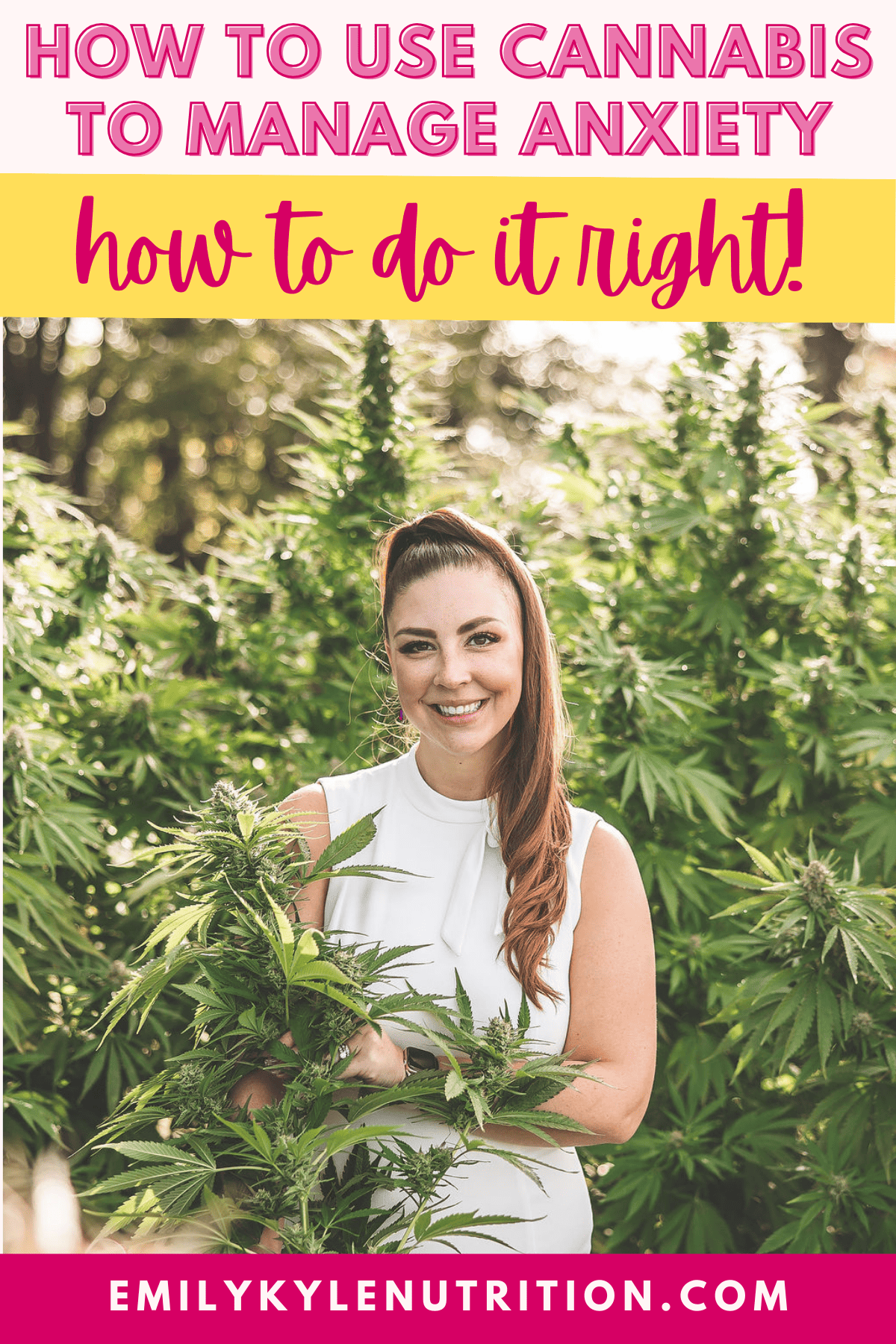
Table of Contents
- Article Features
- Why You Will Love This Guide
- How to Dose CBD and THC with Anxiety Recipe
- Does it Really Work?
- Can Cannabis Make Anxiety Worse?
- Avoid High Levels of THC
- Don’t Skip The CBD
- Know Your Strain
- Don’t Forget the Terpenes
- Application Methods Matter
- Journal Your Experience
- Common Side Effects & How to Deal with Them
- Frequently Asked Questions
- Conclusion
- Get Started Today
Article Features
- How cannabis may be able to help calm and soothe anxiety
- Different types of cannabis and their different uses, benefits, and risks
- Want to make it easy? Shop with me to find everything you need to get started – ordered online and delivered directly to your door!
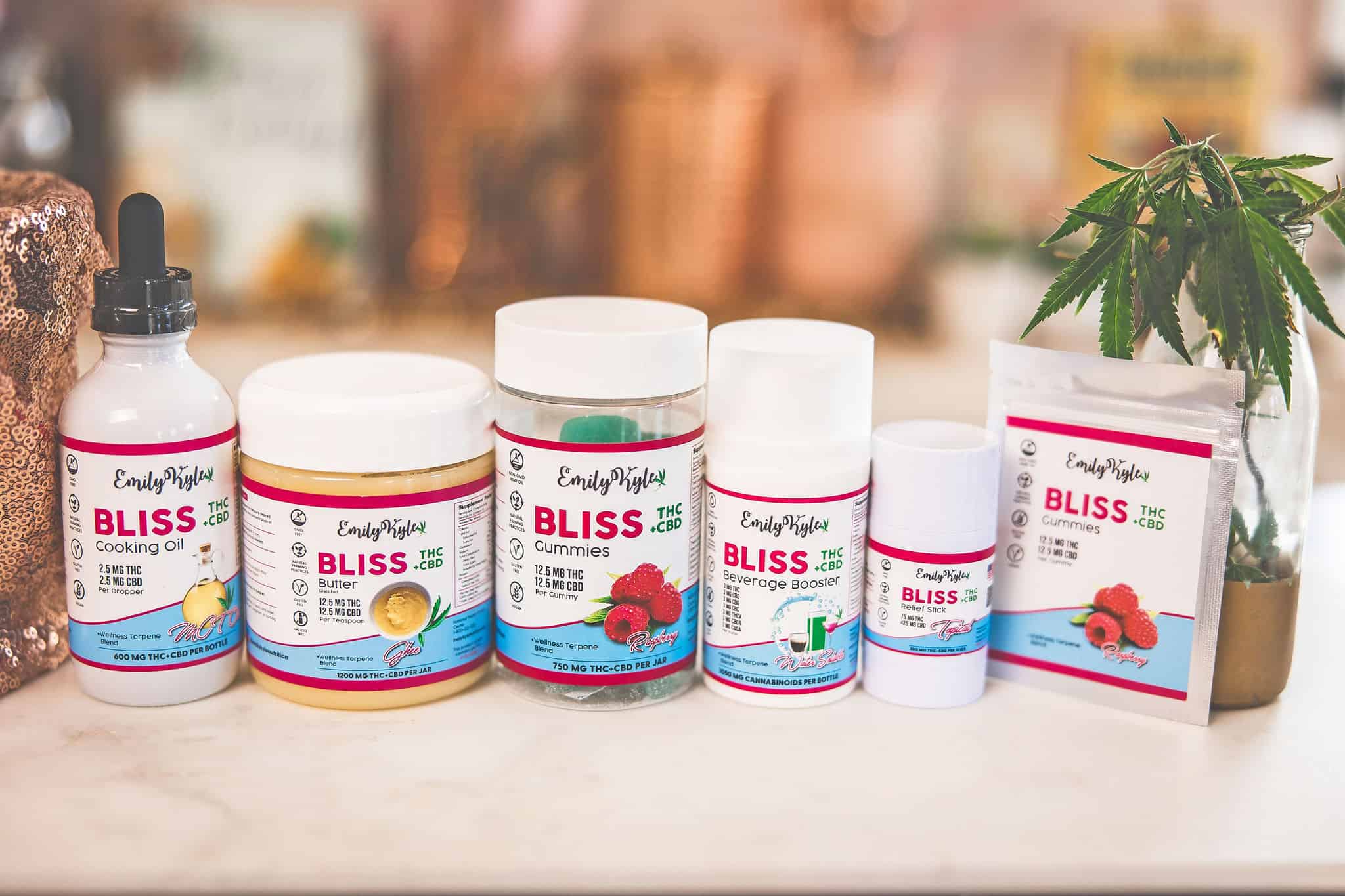
Why You Will Love This Guide
The cannabis plant has helped me and many people in my Well With Cannabis community discover how to manage anxiety naturally – and we couldn’t be happier!
Now, I am on a mission to help people just like you discover how to use this magical plant as a safe part of your natural management regimen.
However, before we get started, if you are considering using cannabis to manage your anxiety, I want you to know two things first:
Don’t worry; I’ll explain it all in this guide. Here I’ll explore why cannabis is a popular choice to alleviate symptoms of anxiety and help promote well-being.
I’ll walk you through the best types of cannabis for managing anxiety in a simple, easy-to-follow way, perfect if you’re just starting out on your cannabis journey!
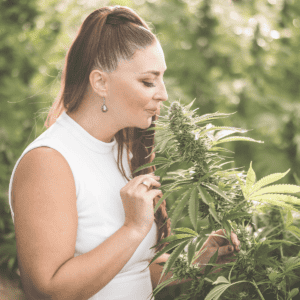
How to Dose CBD and THC with Anxiety
Equipment
What You Need
Options to Try:
- 1 bottle CBD gummies
- 1 bottle CBD oil
- 1 bottle THC gummies
- 1 bottle THC oil
Instructions
- Start with full-spectrum CBD first. CBD can help reduce anxiety symptoms and is also non-intoxicating, making it the perfect safe place to start. You can try CBD gummies or CBD oil – your preference.
- Start with 5mg of CBD every day for at least 3 days. Use your cannabis journal to note your experience and any associated symptoms.
- Feeling great? Awesome, keep doing what you're doing! Not finding relief yet? Continue to increase your dose of CBD by 5mg every few days until you find your sweet spot. Know that you can safely take upwards of 50-100mg of CBD or more.
- Still not seeing the results you're after? It's time to add in THC. I recommend starting with just 1-3mg of THC to start in addition to the CBD. You can use THC gummies or THC oil for precise dosing.
- Do that for one day. Assess how you feel. Feel good? That's your minimun effective dose (MED).
- Don't feel what you're looking for? Increase by 1-2mg the next day. But don't double-dose on the same day; it requires time and patience.
- Continue experimenting with different dosages and ratios of CBD:THC until you find what works for you.
- Don't forget the way you use cannabis can impact your results. If you're not happy with your experience, consider trying an alternative way to use it or using a different strain.
Notes
Does it Really Work?
Cannabis is a natural, non-toxic plant that people have been using for thousands of years to help manage anxiety and conditions like post-traumatic stress disorder.
It’s packed with unique compounds, like cannabinoids and terpenes, that work with your body’s own endocannabinoid system to promote feelings of balance and well-being.
Two key cannabinoids you’ve probably heard of are THC and CBD.
THC is the compound that creates the euphoric “high,” while CBD is known for its calming, non-intoxicating effects.
Many individuals find that these compounds help ease their nervous system, making it easier to manage stress and reduce anxiety.
By gently supporting your body’s natural systems, cannabis can be a helpful alternative to pharmaceuticals that often come with unwanted side effects.
⭐That said, cannabis isn’t a magic cure-all, it’s most effective when paired with a holistic lifestyle to achieve lasting results.
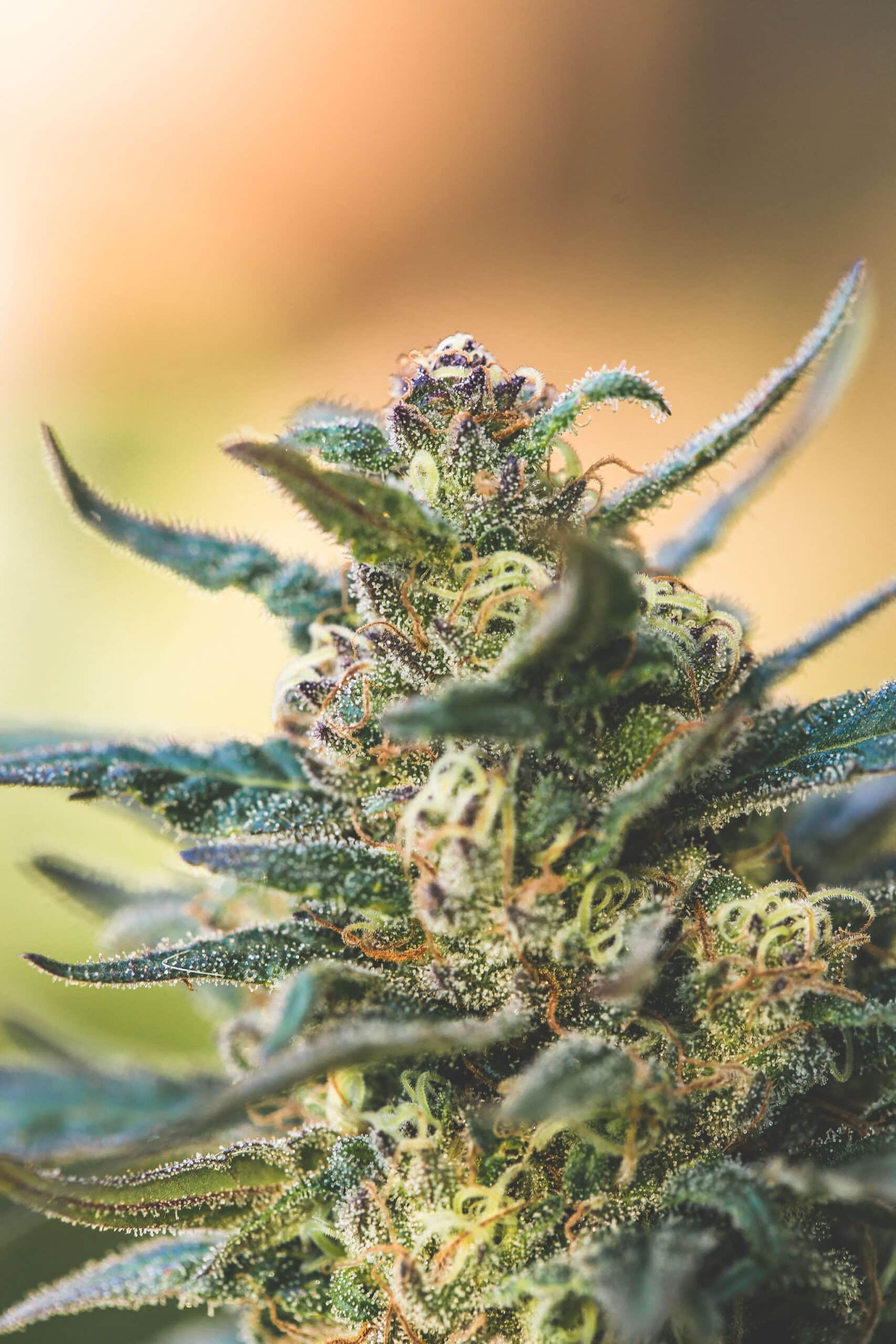
Can Cannabis Make Anxiety Worse?
When it comes to using cannabis to manage anxiety, it’s important to be mindful and understand the potential risks involved.
Cannabis has become easily available, but without direction and education, you could do more harm than good when it comes to managing mood disorders.
Before getting started, it is important to understand that some aspects of cannabis may exacerbate your anxiety.
Things that may increase anxiety:
- High levels of THC
- A particular marijuana strain
- The terpene profile of a strain
Let’s explore these aspects further, so you will know what to be aware of before getting started.
Avoid High Levels of THC
Have you tried cannabis once, a long time ago, maybe in college or in your teens, and had the WORST experience ever?
Heart racing, increased feelings of anxiety, even panic attacks? “But, I thought this was supposed to make me feel better?”
You likely consumed more THC than your body could handle, which sparked the added anxiety and panic.
It’s uncomfortable but a totally normal experience; the psychoactive effects of THC can be too much if consumed.
We will discuss exactly how to dose THC for anxiety below, but always follow the golden rule – start low and go slow!
Note: In this context, we are talking about D9-THC, not D8-THC – which can cause anxiety for other reasons.
Don’t Skip The CBD
For anxiety, I recommend first starting with just CBD or using a combination of both CBD and THC together.
CBD helps to offset the unwanted effects of THC, makes the experience more gentle, and can help the experience be more comfortable.
People often talk about the ratio of CBD to THC.
For example: if you had a 10:1 ratio, it would be (10mg of CBD to 1mg of THC) and provide different effects than a 2:1 CBD ratio (2mg of CBD to 1mg of THC).
I always recommend experimenting with different levels of CBD and THC separately and together to see what your body responds to best.
Some people need a high CBD content, while others find that they need lower amounts of CBD, a different THC ratio, or lower doses to feel better.
Know Your Strain
People always ask me: “what are the best strains for anxiety?”
Unfortunately, there is no one-size-fits-all answer when it comes to picking the right strain of cannabis.
We all have unique physiology and endocannabinoid systems, which means that one particular strain can produce unique effects.
A general guideline for selecting different strains is often based on the Sativa vs. Indica debate.
The three main Cannabis Sativa plant species are Indica and Sativa, and the lesser-known is Ruderalis.
Keep in mind most cannabis plants are not pure Indica or pure Sativa but rather hybrid strains of each, like White Widow.
The main differences in these species are visible in their physical characteristics; Indica plants tend to be short and bushy with fat leaves, while Sativa strains tend to be taller with skinnier leaves.
Indica for Anxiety
In general, consumers love Indica varieties because of their deep relaxation and sedative effects, which are often helpful for soothing chronic pain, muscle spasms, and other medical conditions.
Many people lovingly refer to Indica as “in da couch” because that’s where consumers end up after enjoying Indica-dominant cannabis strains, making it an excellent choice for nighttime use and stress relief.
Reported effects of Indica include nausea relief, pain relief, and appetite stimulation, making it a good option for medical cannabis patients.
Popular Indica strains include Northern Lights, OG Kush, and Hindu Kush.
Sativa for Anxiety ⚠️
Other cannabis consumers love Sativa plants because they stimulate the mind.
As a result, users often feel high and energized after taking Sativa, making it perfect for daytime use.
Others report effects that also help to reduce anxiety and pain.
However, it’s important to note that some people feel unwanted effects from Sativa strains, notably increased anxiety.
This may be related to the specific strain or the THC content.
For this reason, it is a good idea to avoid Sativa-dominant strain types when getting started using cannabis for varying anxiety levels.
Popular Sativa-dominant strains of cannabis include Blue Dream, Sour Diesel, Granddaddy Purple, and Jack Herer.
Don’t Forget the Terpenes
When discussing cannabis strains, we can’t ignore the importance of terpenes.
Terpenes are the aromatic compounds responsible for the smell associated with all things, including cannabis, other herbs, and essential oils.
Together with cannabinoids, they contribute to the entourage effect of cannabis.
There are many different kinds of terpenes, and different levels can be present in different amounts depending on the cannabis strain.
As you become more aware of your best cannabis strains, you will be able to identify which compounds help you feel your best.
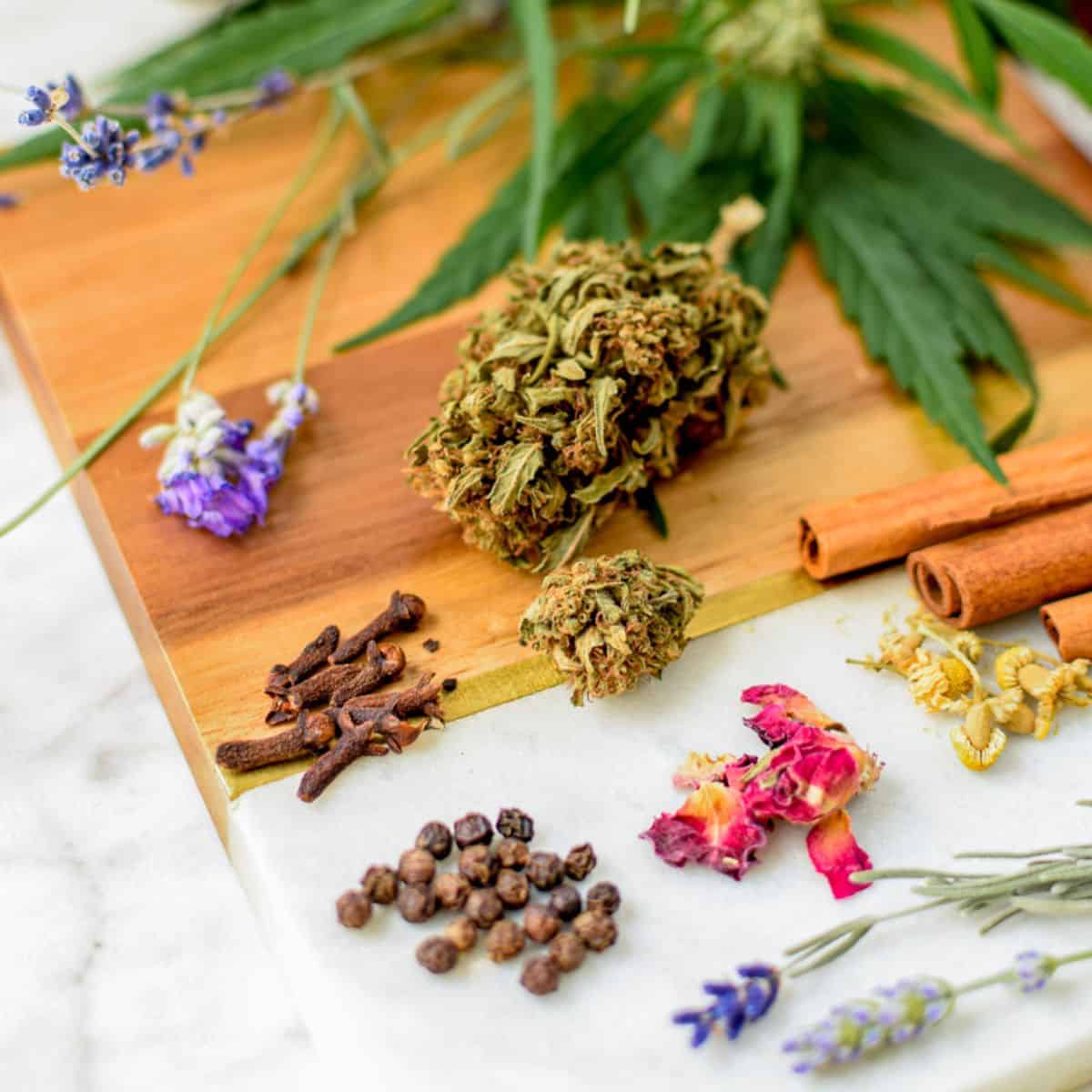
SAVE THIS GUIDE 💌
Application Methods Matter
There are many different ways you can put cannabis in and on your body, which will impact your experience.
Flower buds, or marijuana, are probably the most common type of cannabis and are typically smoked in joints or dry herb vaporizers.
Inhalation is preferred by many because it provides instant relief that can be felt within 1-3 minutes and lasts 1-3 hours.
When smoking, it’s very hard to control the dose, even if you just take a little hit, making this not the ideal option for tracking your dose.
Edibles and smoking are two different experiences, but in the long run, pre-dosed edibles are a good place to start because they will be more likely to produce a consistent and reliable dose and result.
There are also cannabis concentrates, tinctures, topicals, and more – all with slightly different uses and potential benefits.
When considering cannabis as a way to manage anxiety symptoms, read through my guide to cannabis application methods so you can decide which option is right for you.
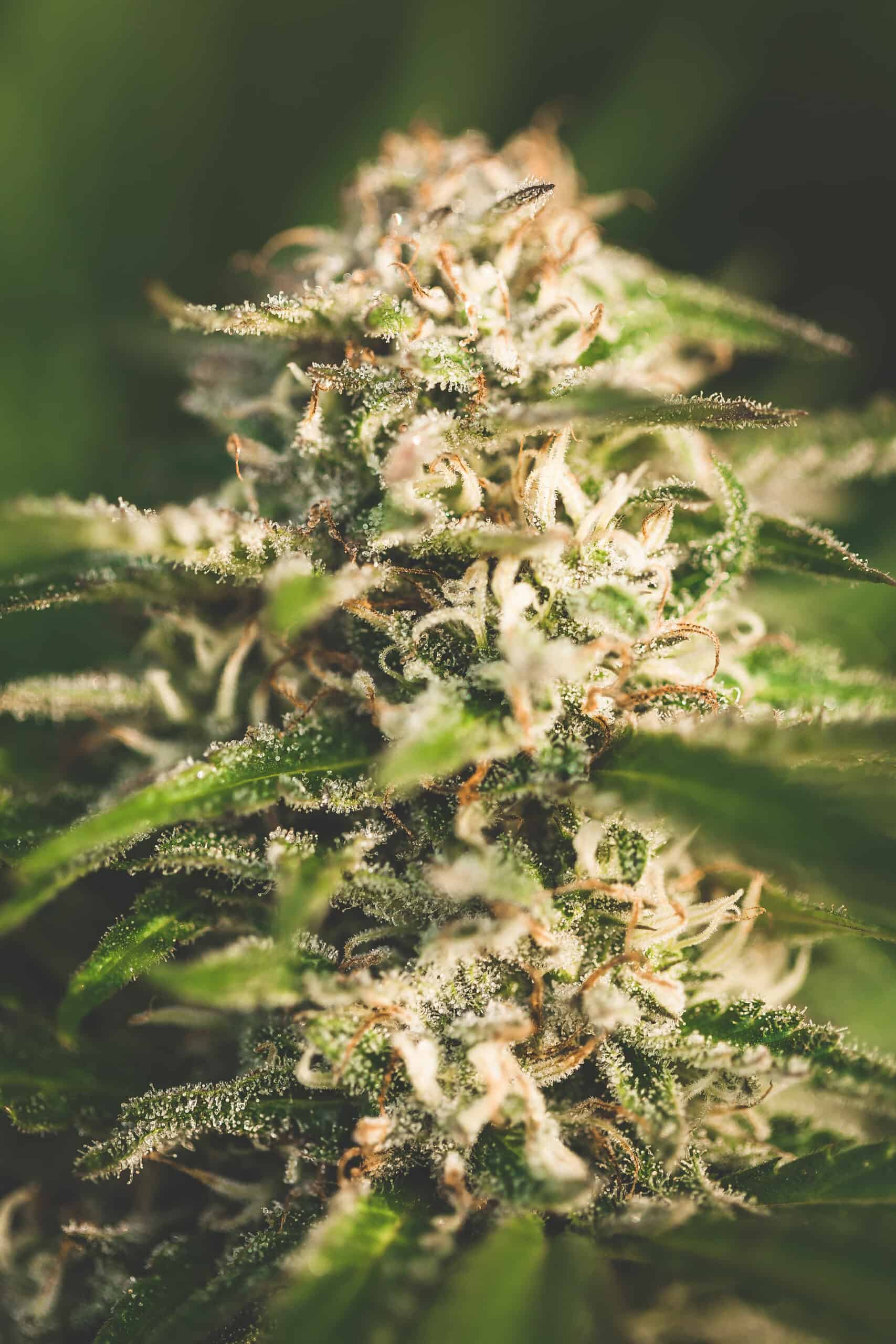
Journal Your Experience
My last piece of advice is to use a cannabis journal, just like you would a food diary.
This can look different for everyone; you can use traditional pen and paper, the notes app on your phone, or I personally use and love the Gold Leaf journals.
These interactive journals come with many different themes, all with the same goal of creating a positive and rewarding cannabis experience.
When you can track your experience, you can analyze your data, begin to notice trends and make educated decisions moving forward.
This really helps give a bigger picture of what is working and what is not, and lets you know how to repeat the good and avoid the bad in the future.
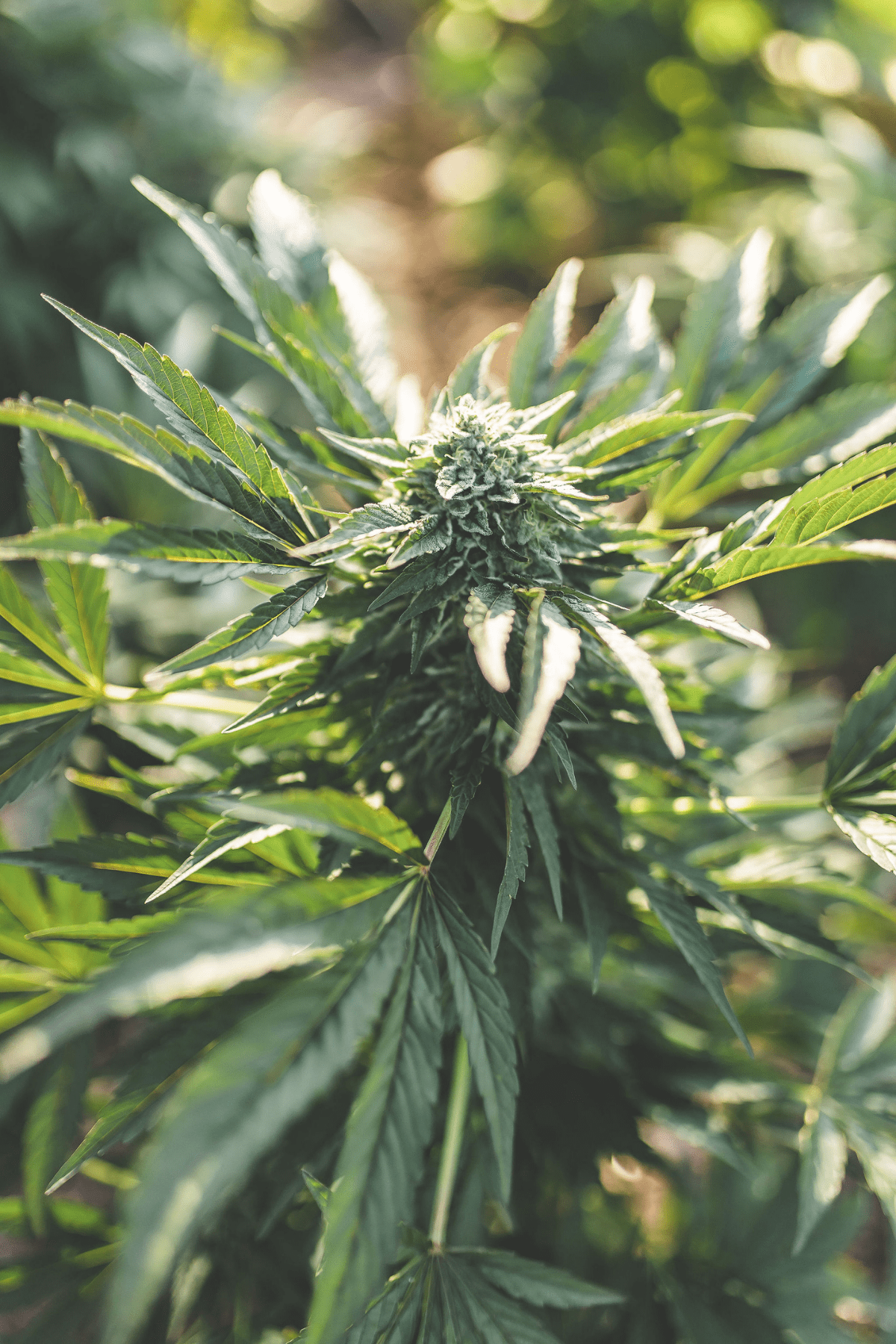
Common Side Effects & How to Deal with Them
Medication can sometimes take a toll on your body, and medical cannabis users know that cannabis is no exception.
Common side effects of using cannabis for anxiety include dry mouth, increased heart rate, dizziness, and drowsiness.
It’s important to take extra care when experiencing any of these symptoms so that you don’t further aggravate your anxiety.
To cope with dry mouth and increased heart rate, it’s helpful to drink lots of water and consider reducing your dosage or trying a different strain when needed.
When drowsy, pay attention to how tired you’re feeling- if necessary, take a nap or rest until you’re feeling better!
Even taking a few CBD gummies can help to reduce the intensity of the experience. Find more tips and tricks for reducing a high here.
Remember that everyone has different reactions to cannabis and unique individual needs. Be patient and supportive of yourself as you navigate through this special journey.
Frequently Asked Questions
Just because something is considered one of the most popular strains doesn’t mean it’s the right choice for you. Read up on Indica vs. Sativa, and then start experimenting.
You do not need a medical card to use cannabis for medicinal purposes, but it can be beneficial to get a card if you have panic disorder, social anxiety, or other anxiety disorders or mental health issues. Many medical marijuana patients have had great experiences in medical dispensaries with folks who can help guide them.
If you want a complete roadmap to navigating your cannabis journey, my Cannabis Compass Online Course is for you! In just a few hours, you will have all the education you need to feel confident and eager to get started
Conclusion
If you’re thinking of using cannabis to manage anxiety, it’s important that you take the time to consider your options and make an informed decision.
There are many products available, and there is no one-size-fits-all solution.
Everyone reacts differently to cannabis; it is important to do your research and understand how the specific product you are considering will affect you before trying it out.
Finally, it may also be beneficial to speak with a healthcare professional who can provide more information on the benefits versus risks of using cannabis for anxiety relief.
Taking these precautions will help ensure the best possible experience! Now, are you ready for a support system to guide you on your journey?
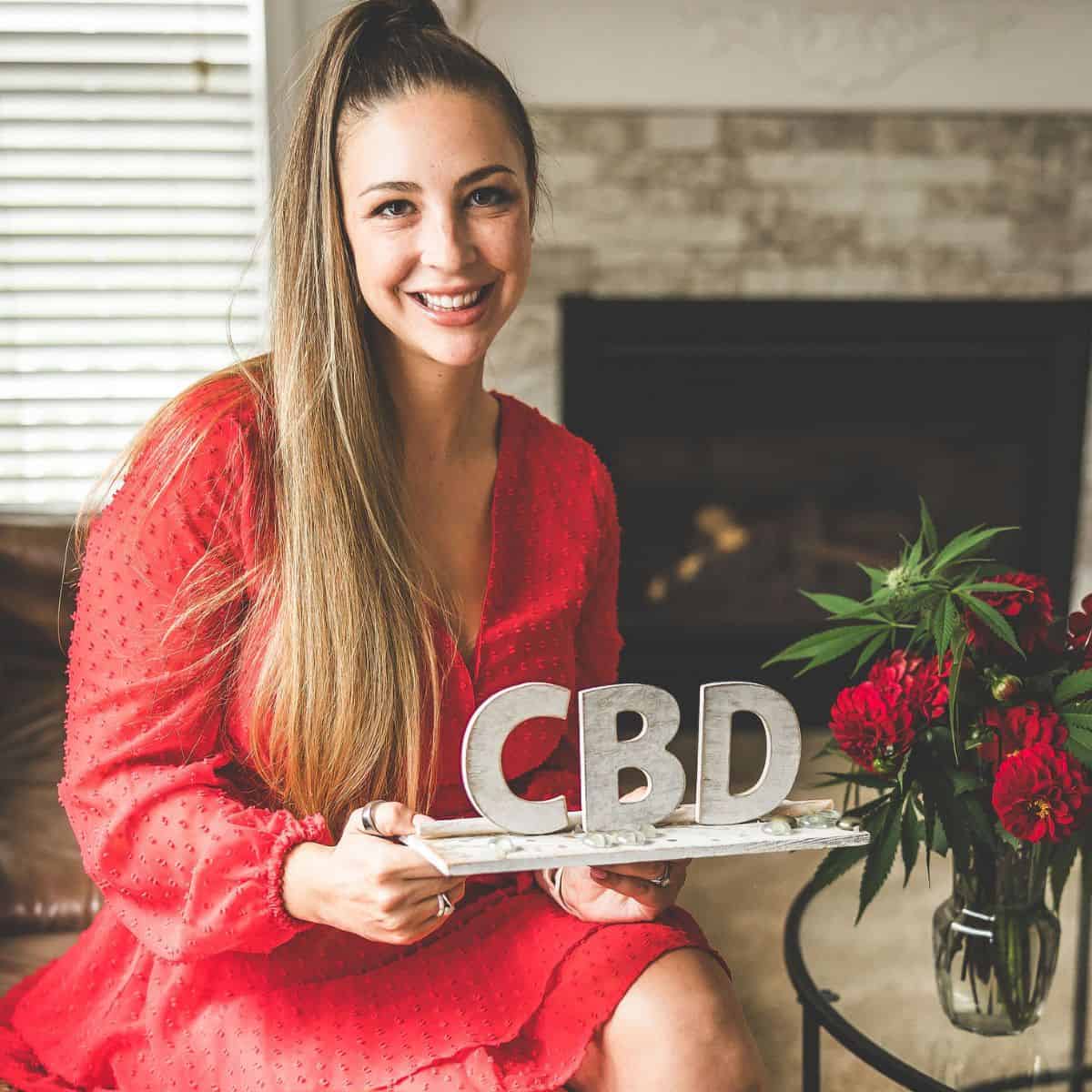
Unlock the Secrets of CBD in Just 5-Days…
Dive deep into how CBD and THC can enhance your wellness journey with my immersive 5-day “CBD, THC & Me” workshop. Get expert insights, personalized guidance, and practical advice to help you harness the potential of the plant.
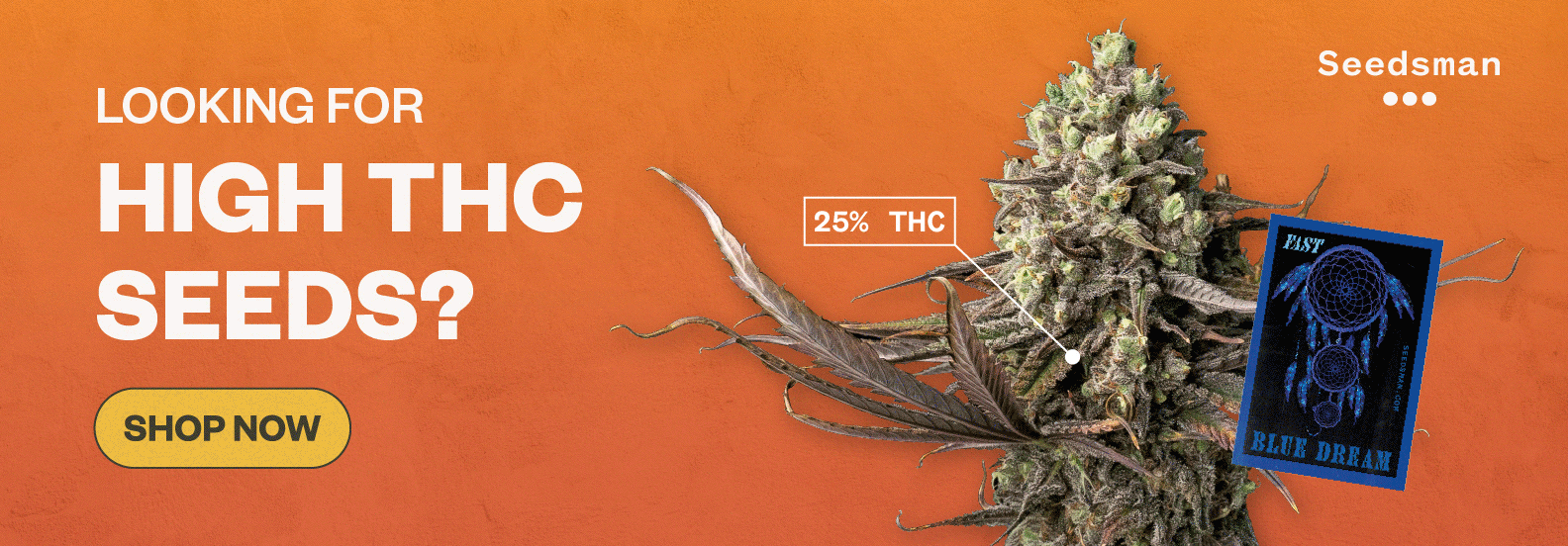
Get Started Today
Shop with Emily
Shop Now: Relief Stick
Shop with Emily
Shop Now: Bliss Micro Gummies
Shop with Emily
Shop Now: Bliss MCT Oil
Shop with Emily

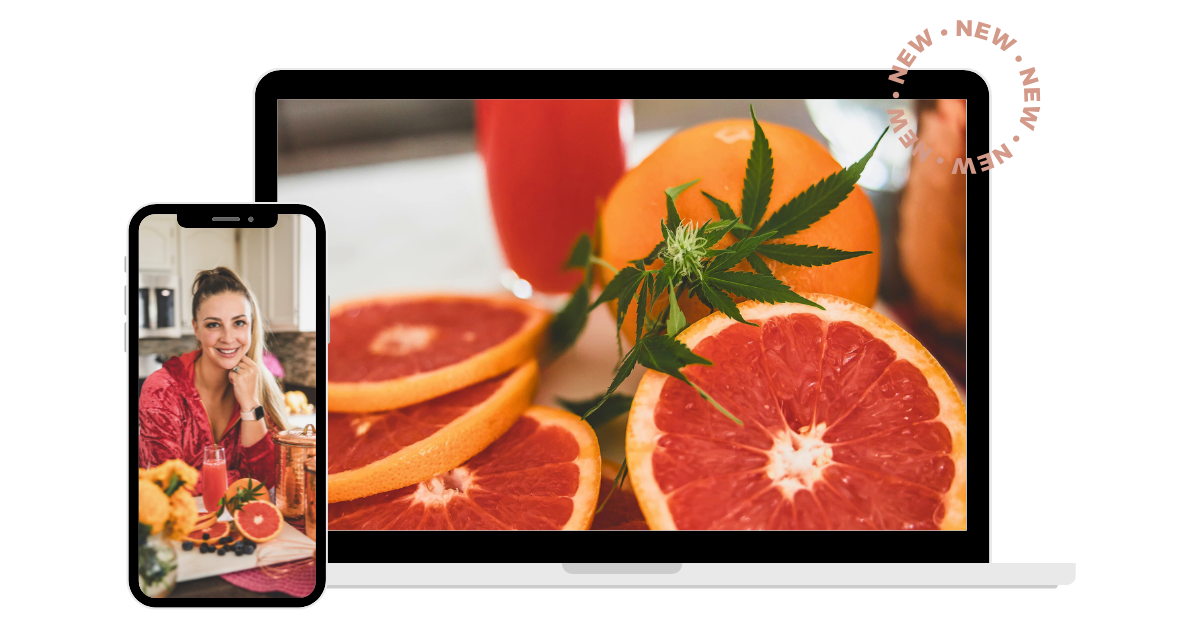
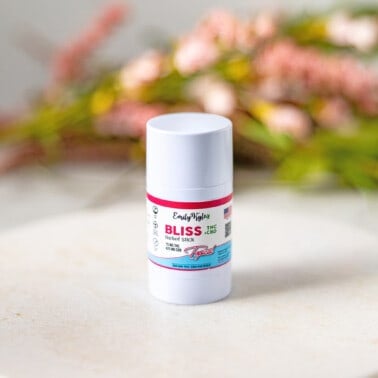
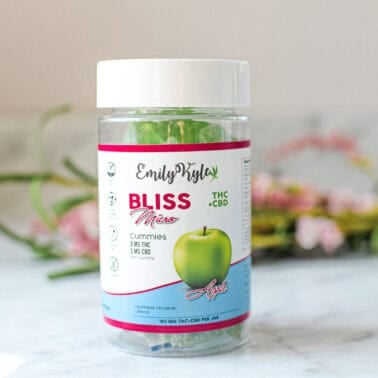
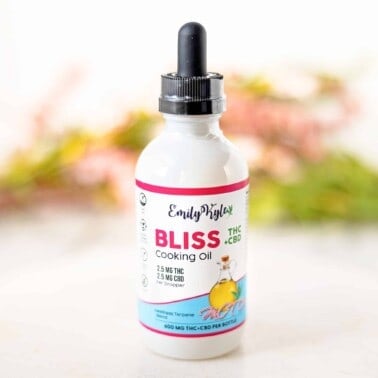
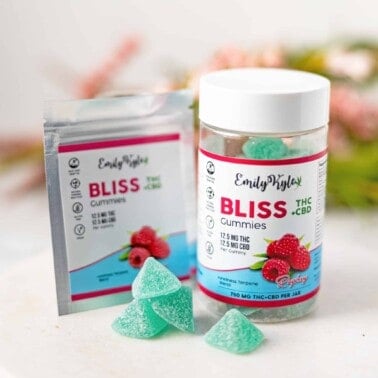
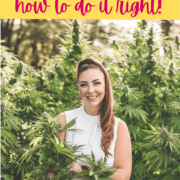








Your site has helped me save a lot of money and learn new, fun skills. I am now teaching complete strangers and referring them back to your site. I have made the butter, the sugar, and different tinctures. The latter is my favorite and my place to shine. Thanks to you I am becoming a crackerjack tender of liquid buds.
Thank you so much for your kind words, Grady! I am so happy to hear that my site has been helpful for you and has inspired you to try so many new and exciting skills. It’s incredible that you’re making butter, sugar, and tinctures, especially since it sounds like crafting tinctures is where you truly shine! Sharing your knowledge with others and referring them back to me is the ultimate compliment, and I genuinely appreciate your enthusiasm and support. Keep up the amazing work, you’re on a fantastic path!
Hi, I’d like to know your opinion on what I’m about to share. I have a nephew, he is 11 years old, the past year he’s been experiencing panic attacks, he gets easily triggered and his anxiety spikes quickly. We are not sure why he is going through this. He is currently seeing a therapist, but things are not getting better. His mom is frightful of getting him on medication from a psychiatrists prescription. Do you think cbd might help anxiety? I know there isn’t much research about the use of cbd on kids for anxiety, but his anxiety is severe and we want ti find him the best help. Thank you for your attention.
Hi Kimberly. I’m sorry to hear about your nephew’s struggles with anxiety. It’s important to work closely with his therapist to explore all available options for treatment. While CBD has shown promise in treating anxiety in adults, there isn’t enough research on its use in children. Cannabis works differently for everyone and the only way to know how it affects one person is through experimentation. Finding a provider who believes in general plant medicine can be valuable and help point you in the right direction. Wishing you and your family the best in finding the right help for your nephew.